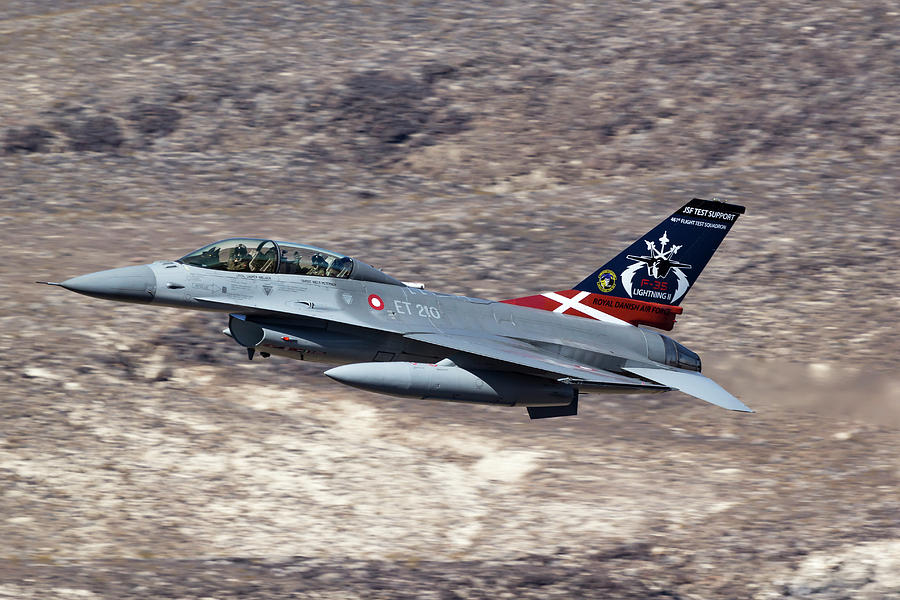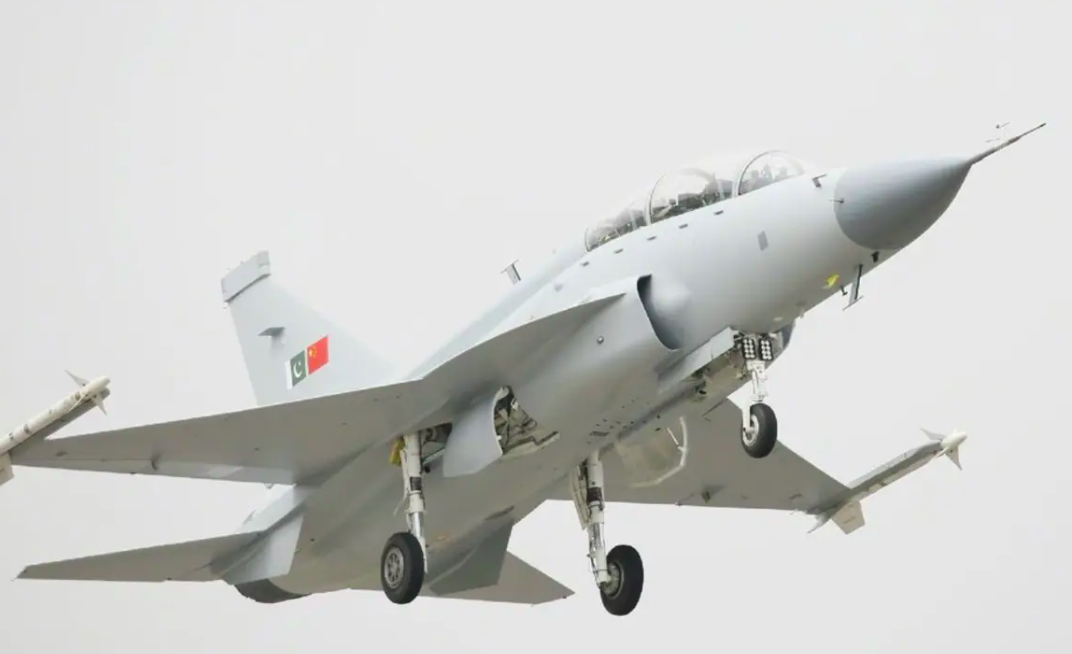By Sergio Pintado
The Argentine Air Force is looking to buy up to 18 supersonic fighter jets and has already analyzed offers from Russia, India, China, and the US.
Although the Chinese offer “meets all the requirements”, the US is taking steps to sell its F-16s to counter Chinese “presence” in the Southern Cone.
The Argentine Air Force’s interest in acquiring new supersonic fighter jets had been expressed since mid-2022 by the Minister of Defense, Jorge Taiana.

The need was mainly because the South American country retired the French Mirage aircraft it had used since the 1970s.
Intending to acquire new supersonic aircraft, the Argentine Ministry of Defense started a review process of several offers in 2022.
According to the specialized website Zona Militar, Argentina had four bids from different countries:
- JF17 Thunder Block III from China,
- F-16 MLU from Denmark and the USA,
- MiG-35 from Russia,
- HAL Tejas from India.
In 2022, Taiana said that Argentina intended to send technicians from the Argentine Air Force to each country to analyze first-hand the aircraft offered.

Thus, in May 2022, a visit to China to study the JF-17 and, in November, a visit to Denmark to analyze the F-16 was scheduled.
A visit to India, the bidder of the HAL Tejas, was also planned.
According to Argentine media, the Russian offer was the only one discarded in 2022 by the Argentine Air Force, mainly due to the conflict in Ukraine and the possible unilateral sanctions that Argentina could face when acquiring Russian armament.
With the other offers still in the running, the Air Force remains attentive not only to the specifications of each aircraft model but also to the logistical support, the required maintenance, and even the possibility that the supplier transfers the technology to Argentina so that the aircraft are built in Argentine territory, indicated the commander of the Argentine Air Force, Xavier Julián Isaac, in an interview with Defensa.com.
“Although we have received proposals from several countries, the ones that have the best chances of materializing are those made by the US and China, since they are the closest to our operational requirements and to the budget we have to incorporate 18 supersonic fighters”, explained the military chief.
The purchase process that began with several offers resulted in competition between the US and China.
An article in the Argentine site specialized in defense Zona Militar considered that the Chinese aircraft could better suit Argentina’s needs.
However, the US sought to readjust its proposals to win the battle and prevent Argentina from acquiring aircraft from the Asian giant.
Something similar had happened in Uruguay, whose Navy also ended up involved in a competition between Washington and Beijing to supply ocean patrol vessels.
Although a technical committee had recommended opting for the Chinese offer, US pressure would have made it easier for the Uruguayan Ministry of Defense to analyze a Norwegian offer with US approval.
In September 2022, a report submitted by the Argentine Chief of Staff to the Chamber of Deputies answered opposition questions about the Chinese offer, stating that the JF-17 “meets the totality of the requirements established by the FAA for the multi-role fighter.”
The report also highlights that the Chinese model has the lowest cost per flight hour of the bids analyzed: while the F-16 costs US$10,000 per flight hour, the Chinese JF-17 does so for US$7,600.
In addition, the WS-13 engines, the seats, and the short and medium-range missiles are of Chinese origin and “have no restriction”.
This is a key element for Argentina, which had marked among its basic requirements that the offer is “without components of British origin”.
THE MALVINAS WAR, A KEY FACTOR
Since the Falklands War between Argentina and the United Kingdom in 1982, London has prohibited the sale of military supplies to the Argentine armed forces.
The embargo applies to UK-manufactured goods and military equipment manufactured in other countries with British parts.
This particularity may be a crucial disadvantage for the F-16, which, like several other fighter-bomber models, has ejector seats of British origin.
Because of this, the US required London’s endorsement to finalize the sale of the aircraft to Argentina.
That the deal materializes seems to be of utmost importance for the US, which has repeatedly stressed the convenience for Washington that the UK and Buenos Aires normalize their relations to be able to sell armaments to Argentina.
In July 2022, the US ambassador in Buenos Aires, Marc Stanley, called for a solution to the Falklands conflict “because it prevents us from selling defense equipment to Argentina because it contains British parts”.
Similarly, a report of the US Naval Institute of August 2022, quoted by Zona Militar, assures that “it is imperative” that the US “pay more attention” to the Southern Cone of South America to prevent China from reinforcing its political, economic and military presence.
The document emphasizes Argentina, warning that the conflict with the United Kingdom has become an obstacle to US interests.
“The UK’s resistance to Argentine military modernization and advancement has pushed Argentina into China’s hands,” confesses the document, which compiles the multiple treaties and agreements signed between Buenos Aires and Beijing in different fields, including the military, in recent years.
The Argentine Air Force will also have to deal with the stance of Argentine President Alberto Fernandez, who, in December 2022, sought to deprioritize the purchase of the aircraft.
“Argentina has to allocate its resources to more important things than the purchase of military aircraft today,” he said during a conference organized by Financial Times.
With information from Sputnik

